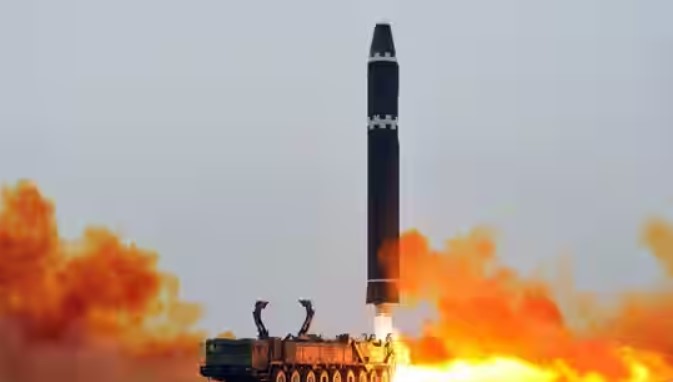North Korea announced on Monday that it had test-fired new long-range cruise missiles over the weekend, in what it called a self-defense measure against hostile forces, and issued a new threat to the United States, warning that it was ready for a confrontation.
The missile tests
According to the official Korean Central News Agency (KCNA), the missiles were launched from a ground-based platform and traveled for over two hours along an oval and pattern-variant flight path before hitting their targets in the sea. The report did not specify the exact range, payload, or other technical details of the missiles, but said that they had proven their performance and reliability, as well as their ability to avoid interception and strike preemptively.
The report also quoted Kim Jong-un, the North Korean leader, as saying that the missiles were a strategic weapon of great significance that would contribute to strengthening the country’s defense capabilities, deterrence posture, and regional stability. He reportedly watched the tests from a monitoring post and praised the scientists and technicians involved in the development of the missiles.
The US response
The US government has not commented on the North Korean missile tests yet, but they are likely to be seen as a provocation and a violation of UN Security Council resolutions that prohibit North Korea from developing and testing ballistic missiles. The US has been monitoring North Korea’s military activities and nuclear programs for decades, and has maintained a policy of “maximum pressure” through sanctions and military exercises, as well as diplomatic engagement with allies and rivals in the region.
However, the Biden administration has signaled a willingness to resume talks with North Korea, which had stalled under the Trump administration, and has expressed a desire to achieve a complete denuclearization of the Korean peninsula through peaceful means. The US has also said that it is prepared to respond to any threats or provocations from North Korea with appropriate measures, including military force if necessary.
The regional implications
The North Korean missile tests are likely to raise tensions in the region and pose a challenge to the US and its allies, particularly South Korea and Japan, which are within range of North Korea’s missile arsenal. They also come amid a broader geopolitical context of rising competition and conflict between the US and China, as well as a growing sense of insecurity and uncertainty in the post-pandemic world.
The missile tests may also have domestic implications for North Korea, which has faced economic hardships and social unrest due to the COVID-19 pandemic and international sanctions. Kim Jong-un may be seeking to rally support and divert attention from these issues by showcasing the country’s military prowess and nationalist fervor.
Conclusion
In conclusion, North Korea’s test-firing of long-range cruise missiles is a significant development that underscores the country’s military ambitions and strategic calculus. It also highlights the challenges and risks of dealing with a rogue state that possesses nuclear weapons and ballistic missiles, and that is willing to use them to advance its interests and protect its regime. The US and its allies will need to coordinate their responses to North Korea’s provocations and pursue a comprehensive strategy that addresses both the security and humanitarian dimensions of the Korean peninsula issue.







